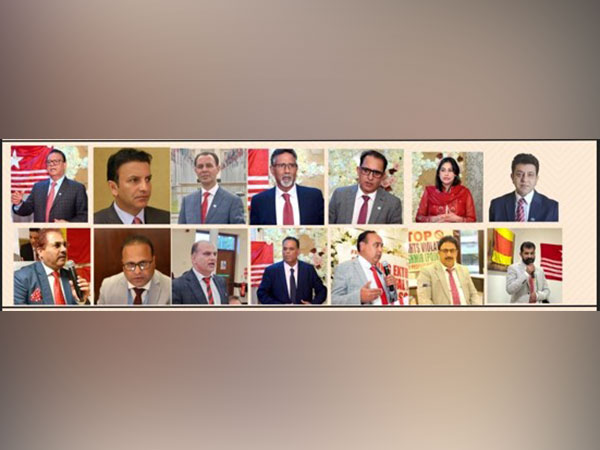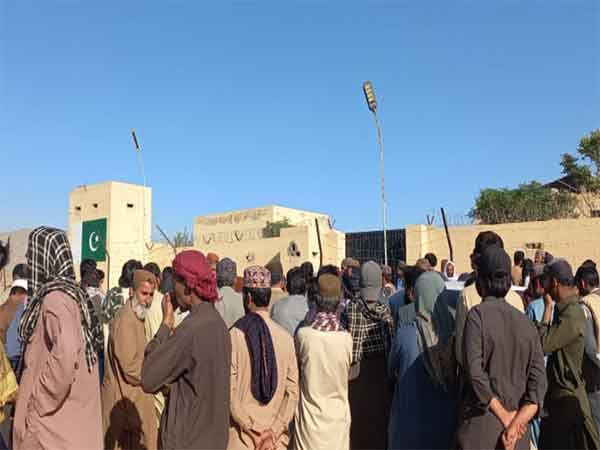China snares Pakistan in BRI debt trap with high-interest rates, stiff repayment terms, lack of transparency
Mar 24, 2022

Islamabad [Pakistan], March 24 : China is snaring Pakistan in the Belt of Road Initiative (BRI) debt trap with high-interest rates, stiff repayment terms and lack of transparency.
Fabien Baussart, writing in a blog in The Times of Israel said that China is charging higher interest rates for the Karot Hydropower project in Pakistan, the interest rate is as high as 5.11 per cent. China Three Gorge South Asia Investment Limited holds 93 per cent ownership stakes in Karot Hydropower.
A typical loan from Chinese institutions under the BRI entails an interest rate of 4.2 per cent and a repayment period of less than 10 years. As against this, a loan from an international donor consortium like the Development Assistance Committee of Organization for Economic Co-operation and Development, through which countries like Germany, France or Japan lend, carries an interest rate of 1.1 per cent and a repayment period of 28 years.
The position of Pakistan is the most precarious. Pakistan tops the list of recipient countries of BRI assistance, with projects worth USD 27.3 billion, said Baussart.
According to an International Monetary Fund study, the external debt of Pakistan ballooned to USD 90.12 billion in April 2021, with Islamabad owing China USD 24.7 billion, or over 27 per cent of the debt burden of Pakistan.
According to the IMF, the burden of hidden and sovereign debts would be a major cause of concern for Pakistan in the coming days. Assets of Pakistan will be tied to the Chinese economy.
There are 26 CPEC-related projects in Pakistan. These include eight projects related to energy, four related to transportation, one related to communication, three related to education, two pertaining to banking and financial services, one related to reconstruction and rehabilitation, and two projects related to government and civil society, reported The Times of Israel.
To get BRI loans, the recipient country has to sign a memorandum of understanding with China. Most of the financing of BRI projects are done through bilateral agreements between the lending banks and the recipient governments against sovereign guarantees.
In many cases, the projects are executed by Chinese firms to whom the loans are routed. The host country gains little, said Baussart.
The first casualty is transparency, as there is usually opacity around sovereign guarantees. Loans are also collateralized against local resources, the borrower pledges to the lender a specific asset as security against the loan.
Among the recipient countries of BRI investment, there are 17 economies with an investment grade of BBB or above, 29 economies are below investment grade and 14 have no ratings at all, according to the OECD Business and Finance Outlook 2018.
Pundits say that BRI projects are finished with less time overruns, but quality, safety, social equity and the environment are compromised.
The cumulative value of such projects described as "troubled" since 2005 is estimated to be nearly USD 370 billion. Among these are energy projects worth about USD 5 billion in Pakistan.
The flip side of BRI is that 23 recipient countries of BRI funding are faced with debt distress. Among the eight countries are of particular concern: Djibouti, the Kyrgyz Republic, Laos, the Maldives, Mongolia, Montenegro, Tajikistan and Pakistan.
President of Pakistan Imran Khan's party Pakistan Tehreek - e -Insaaf, when in opposition, had questioned the terms and conditions of CPEC projects and the lack of transparency around them.
However, Pakistan today has no way out but to toe, China's line is evident from the way Pakistan President Imran Khan in his visit to Beijing during the Winter Olympics endorsed China's misdemeanours in Xinxiang, Tibet, Taiwan and the South China Sea.
In December 2021, despite an invitation from the USA, Pakistan opted out, at the behest of China, of the Summit for Democracy convened by American President Joe Biden. Washington did not invite Beijing to the summit.



















